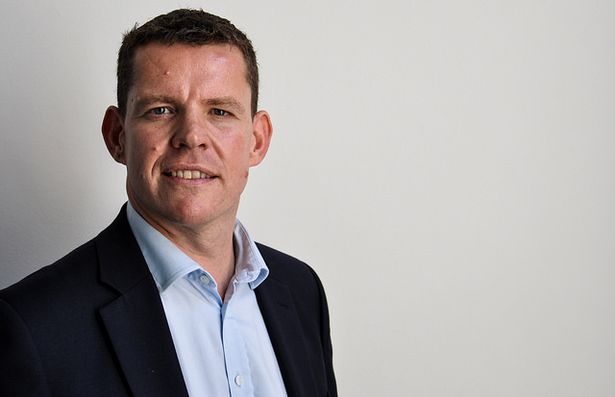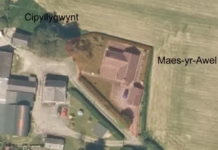Amid reports that more than half of adults in the UK claim their financial situation has worsened in the last year, the concept of “financial freedom” has soared with 91.8 million views on TikTok.1,2 With this in mind, the investment experts at Oxford Capital surveyed 1,000 UK residents to determine what steps adults in the UK are taking to achieve financial freedom.
Key findings:
-
One in three UK adults have started or are planning to start their own business to achieve financial freedom (31.6%)
-
Almost 1 in 5 respondents do not or are unable to store any money each month (19.2%)
-
Northern Ireland is the least prepared region, with just 2.4% putting aside funds or planning to do so in order attain financial independence
-
Mark Bower-Easton, Head of Distribution at Oxford Capital shares his advice on how to attain financial freedom.
The UK regions investing the most in financial freedom
|
Rank |
Region |
% of respondents |
|
1. |
Greater London |
10.4% |
|
2. |
South East |
10.3% |
|
3. |
North West |
8.0% |
|
4. |
East of England |
7.3% |
|
5. |
South West |
6.7% |
|
6. |
West Midlands |
6.6% |
|
7. |
Yorkshire and the Humber |
6.3% |
|
8. |
Scotland |
6.1% |
|
9. |
East Midlands |
5.5% |
|
10. |
Wales |
3.7% |
|
11. |
North East |
2.8% |
|
12. |
Northern Ireland |
2.4% |
Oxford Capital found that Greater London residents are the most prepared to become financially free, with 10.4% of respondents taking steps, planning to or having already achieved financial freedom. 80% of Greater London residents that are taking steps to become financially free chose saving accounts as their preferred method, followed by building multiple income streams, tied with opening an ISA account (72%).
Residents living in the South East rank second in terms of preparing for financial freedom (10.3%). Savings accounts are also the most popular method for financial independence in the South East, being the preferred method for 75% of those taking steps, planning to or having already achieved financial freedom. Over a third (36%) currently or aim to start their own business.
Ranking third is the North West, where one in 12 are taking steps, planning to or have already achieved financial freedom (8%). Savings accounts continue to be popular in this region, with over two-thirds opting for this lower-risk method (67%). More than half (57%) are considering or have already opened an ISA account.
Q1: “What steps do you take or plan to take to attain financial independence?”
|
Financial freedom steps |
% of respondents |
|
Opening a savings account |
56.6% |
|
Opening an ISA |
45.3% |
|
Organising a more thorough retirement plan |
43.0% |
|
Building multiple income streams through side hustles |
41.0% |
|
Investing in stocks and shares |
38.7% |
|
Seeking professional financial advice |
37.7% |
|
Starting own business |
31.6% |
Oxford Capital can reveal that over half of UK adults surveyed (56.6%) have or are planning to open a savings account in a bid to attain financial freedom. By regularly depositing money into a savings account, even modest savings can grow through compound interest, helping to achieve long-term financial goals such as buying a home, or funding retirement. This relatively low risk method of attaining financial freedom is most opted for by residents aged over 55 (15.9%) followed by those aged between 25 and 35 (12.4%).
Whilst it is the least popular method amongst the UK adults surveyed, one in three UK adults have started or are planning to start their own business to achieve financial freedom (31.6%). Building wealth and achieving financial freedom often requires long-term planning and discipline and whilst entrepreneurship might involve a higher level of risk, it also offers a degree of control and the potential for greater rewards if successful.
A similar level of UK adults are seeking professional financial advice (37.7%) or investing in stocks and shares (38.7%) to attain financial independence. It’s always key to consult an expert before making significant financial decisions, as they can provide insights and guidance tailored to your specific financial situation, goals, and risk tolerance.
Whilst the number of Brits investing has fallen due to economic uncertainty, stocks and shares have historically provided higher returns compared to other asset classes over the long term. Investing in well-established companies or growth-oriented stocks can offer the potential for significant capital appreciation and be part of a long-term plan towards financial freedom.
How much are UK adults investing to become financially free?
|
Amount of money per month residents put away to attain financial freedom (£) |
% of respondents |
|
Less than £1 |
0.67% |
|
£1-£200 |
33.20% |
|
£201-£500 |
21.20% |
|
£501-£1,000 |
12.10% |
|
£1,001-£2,000 |
6.40% |
|
£2,001-£3,000 |
3.60% |
|
£3,001-£4,000 |
1.70% |
|
£4,001-£5,000 |
1.70% |
|
More than £5,000 |
0.10% |
|
Residents that don’t put any money away |
19.20% |
The survey highlights that the majority of UK residents surveyed, over a third, invest between £1-£200 per month toward their financial freedom (33.20%). This is followed by more than one in five residents who put away between £201-£500 per month (21.20%).
Almost a fifth of UK residents don’t or are unable to put away any money each month (19.20%), likely due to economic uncertainty, wage stagnation and the high cost of living in the UK. One in four adults who worry that they aren’t saving enough every month to reach their financial targets, with some suspecting that they’d need to earn £60,000 a year to avoid worrying about money all together.3
A combined 7% of respondents are investing between £2,001-5,000 per month toward financial freedom. To be able to invest at the higher end of this bracket, Brits would need to earn upwards of £90,000 per year, placing them in the top 5% of earners in the UK.
Mark Bower-Easton, Head of Distribution at Oxford Capital, shares his advice on achieving financial freedom:
“Whilst financial freedom is a broad concept, for many adults in the UK financial freedom refers to being debt free, being able to pay off the mortgage and to be able to confidently cover unexpected costs. For others, it’s feeling in control of their finances, being able to save money, having disposable income available at the end of the month and not worrying about when payday is. Our survey has highlighted that over a third of Brits are already planning to or have started their own business to achieve these goals.
Are there any unmet needs or opportunities in your local area? Are there specific challenges in your community that you frequently encounter or hear others talking about? These could be opportunities for innovative solutions or services that could form the basis of a successful business venture. This step ensures that the business has a solid foundation and a viable market to tap into.
Many councils in the UK offer free business advice, workshops, and resources for aspiring entrepreneurs, providing valuable support in areas such as business planning, financing options, and legal requirements. Additionally, networking with local business owners and industry professionals can offer invaluable insights and potential partnerships. By leveraging these resources and connections, individuals can strengthen their business acumen and increase the chances of securing financial independence.”
Credit: https://oxcp.com/.

| [donate]
| Help keep news FREE for our readersSupporting your local community newspaper/online news outlet is crucial now more than ever. If you believe in independent journalism,then consider making a valuable contribution by making a one-time or monthly donation. We operate in rural areas where providing unbiased news can be challenging. |






















